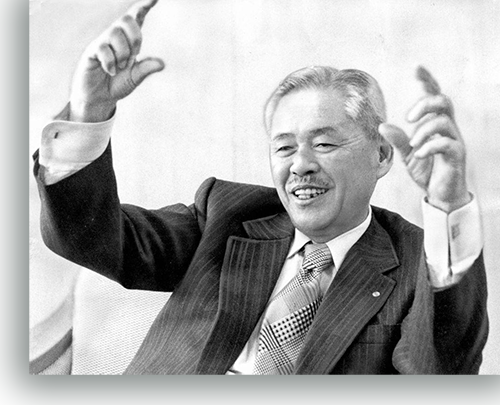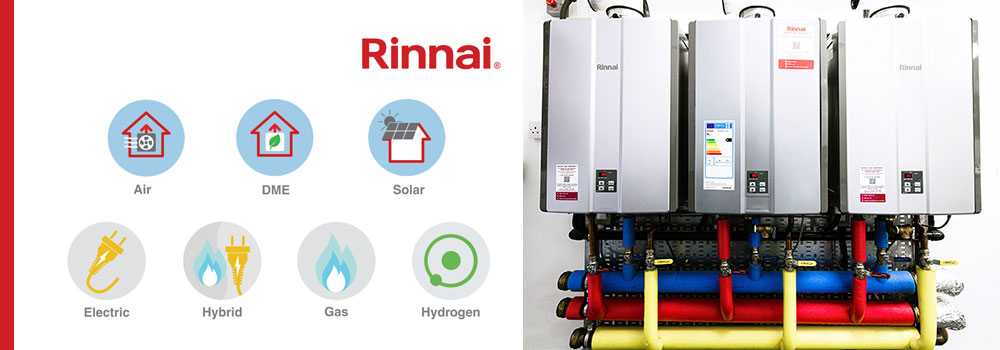Chris Goggin explains how “Kaizen” and “Kanban” methodologies provide insight to the high standards of production values that globally renowned Japanese brands embed into the totality of the manufacturing practices.
Japanese manufacturing is renowned for high levels of aesthetic and operational function. Many of the globe’s leading brands in electrical and combustion technology are from Japan, such as Toyota, Nissan, Honda, and Sony, all of which incorporate the “Kaizen” and “Kanban” methodology into daily operations.
The term Kaizen has come to mean “continuous improvement,” a broader interpretation can be translated as continuous improvement in personal life, home life, social life and working life. A Kaizen approach focuses on implementing gradual and incremental changes that will produce long-term improvements in efficiency and quality in private and professional life.
To create continuous improvement across multiple platforms in professional and general life, the Kaizen attitude suggests adopting 5 key principles to improve an individual’s approach in work, social life and at home.
These five principles that facilitate the concept of Kaizen are as follows: Know Your Customer, let it Flow, Go to Gemba, Empower People and Be Transparent. Together, these elements encourage personal and group progression in professional and private life quality output.
“Know Your Customer” identifies what is truly required by the customer and delivers enhanced end-product that exceeds demand. “Let it Flow” concentrates on creating a smooth flow of processes and practices. Identifying and eliminating production bottlenecks and reducing customer waiting times. This principle focuses on eliminating waste in all aspects of the commercial operation – waste is viewed as any culture or practice that does not benefit the customer or encourage professional productivity.
The third principle “Go to Gemba” translates as being always concerned with all matters in every department. “Be Transparent” is the idea of utilizing and measuring data that improves company progress. The final principle “Empower People” relates to providing appropriate tools to successfully complete group targets that maximize production efficiency.

Toyota engineer Taiichi Ohno
Kanban was invented by Toyota engineer Taiichi Ohno during the late 1940s. The term “Kanban” when broken down into two words from Japanese to English means “Kan” (sign)” and “Ban” (board). Kanban is a philosophy that seeks to encourage continuous improvement in production and business methods by measuring project progress through visual Kanban boards.
A Kanban approach was employed to improve Toyota’s production system by incorporating elements of lean manufacturing into their process. Kanban framework allowed Toyota to transition from a “push” process (products are pushed on to the market) into a “pull” system (products that are created due to market demand). This idea allows companies to risk low inventory levels whilst remaining competitive.
Kanban is also referred to as the “Just in Time” (JIT) system, company production can concentrate on creating products because of consumer demand as opposed to manufacturing products that rely on anticipated demand.
Kanban boards are organised into columns – each column contains visual cards that represent a task during a separate stage of work. The team can easily track task progress and share necessary information that assists in task completion. Kanban boards are an agile and fluid visual form of measuring group progress during the completion of a task.
The creator of the Kanban framework Taiichi Ohno maintains strong links to Rinnai and has had a discernible influence and impact on Rinnai’s production system. Ohno visited Rinnai’s Japanese production plant and provided critical observations and advice that led to Rinnai adopting lean manufacturing principles that enhanced product producing efficiency.
Japanese electrical goods manufacturing is globally recongnised as the highest in performance and production efficiency due to a selection of professional techniques, amongst these are Kaizen and Kanban methodologies. Many Japanese companies adopt elements of both Kaizen and Kanban ideals which has led to Japanese engineered and manufactured products being regarded as being amongst the finest in the world.
Rinnai products incorporate the best manufacturing techniques
ensuring robust product performance, extended warranties and cost effectiveness
To learn more about Rinnai products
CLICK HERE to join our monthly newsletter

RINNAI OFFERS CLEAR PATHWAYS TO LOWER CARBON AND DECARBONISATION PLUS CUSTOMER COST REDUCTIONS FOR COMMERCIAL, DOMESTIC AND OFF-GRID HEATING & HOT WATER DELIVERY
- Rinnai’s range of decarbonising products – H1/H2/H3 – consists of hot water heating units in gas/BioLPG/DME, hydrogen ready units, electric instantaneous hot water heaters, electric storage cylinders and buffer vessels, a comprehensive range of heat pumps, solar, hydrogen-ready or natural gas in any configuration of hybrid formats for either residential or commercial applications. Rinnai’s H1/2/3 range of products and systems offer contractors, consultants and end users a range of efficient, robust and affordable low carbon/decarbonising appliances which create practical, economic and technically feasible solutions.
- Rinnai is a world leading manufacturer of hot water heaters and produces over two million units a year, operating on each of the five continents. The brand has gained an established reputation for producing products that offer high performance, cost efficiency and extended working lives.
- Rinnai products are UKCA certified, A-rated water efficiency, accessed through multiple fuel options and are available for purchase 24/7, 365 days a year. Any unit can be delivered to any UK site within 24 hours.
- Rinnai offer carbon and cost comparison services that will calculate financial and carbon savings made when investing in a Rinnai system. Rinnai also provide a system design service that will suggest an appropriate system for the property in question.
- Rinnai offer comprehensive training courses and technical support in all aspects of the water heating industry including detailed CPD’s.
- The Rinnai range covers all forms of fuels and appliances currently available – electric, gas, hydrogen, BioLPG, DME solar thermal, low GWP heat pumps and electric water heaters More information can be found on Rinnai’s website and its “Help Me Choose” webpage.
RINNAI FULL PRODUCT AVAILABILITY 24/7 FOR NEXT DAY DELIVERY of
ALL HOT WATER HEATING UNIT MODELS INCLUDING 48-58kW UNITS-
SAVINGS OF
20% REDUCTION of opex cost
30% REDUCTION of initial cost
15% REDUCTION in carbon
75% REDUCTION of space





